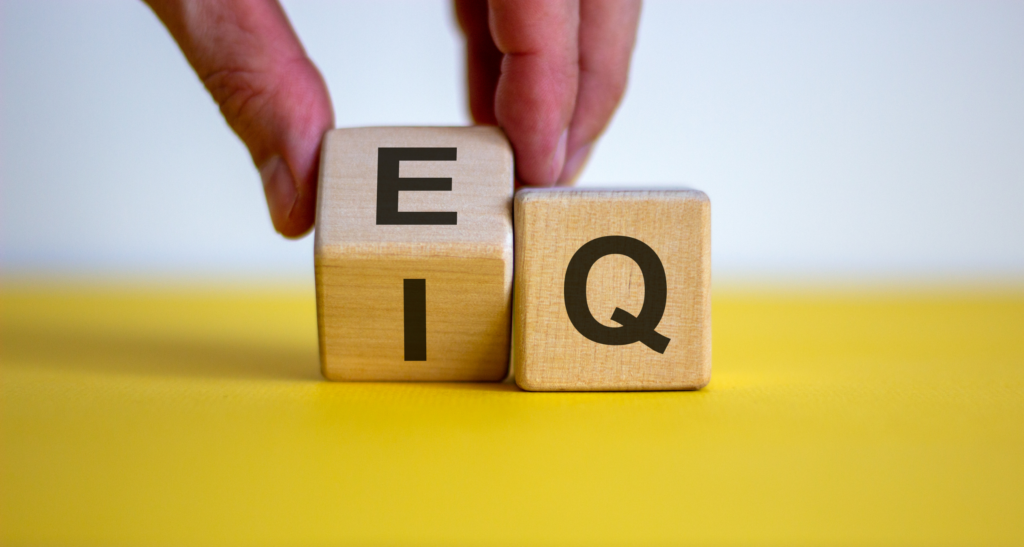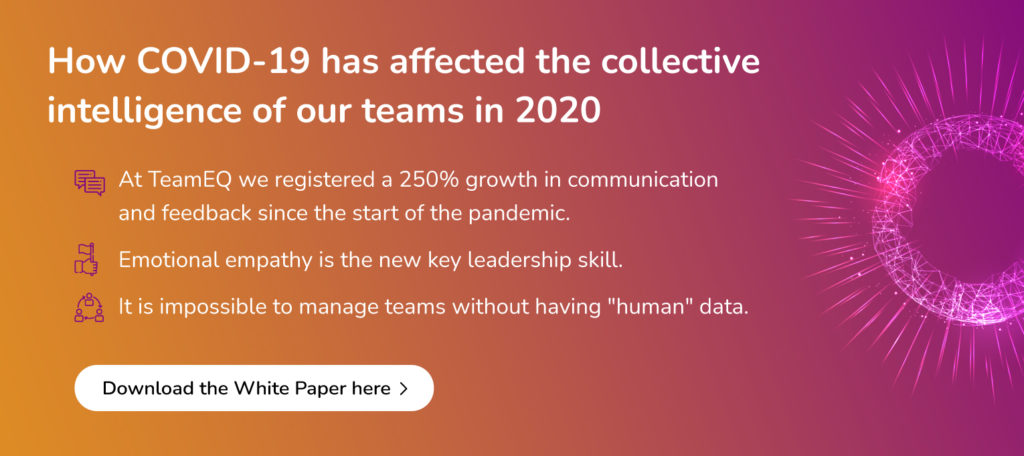How can emotional intelligence help your team perform better? The empathetic productivity
As we move into the next stage of living with Covid19, the situation has served to further underline something that we all know already: remote working is here to stay. But, for remote working to function successfully, the challenge for leaders is not only to manage their remote teams, but also to find out how they are feeling.
Using emotional intelligence to understand their needs (and try to meet them) will be key to maintaining performance in the middle and long term. In today’s remote working environment, it is relatively easy to set objectives and measure performance. It is harder to monitor feelings and pick up on emotions. However, both of these factors will be vital to ensure well-being and productivity in a more uncertain world.
Some companies are still applying traditional methodologies of management and monitoring. But these paradigms don’t work anymore. As we can no longer rely on physical presence to give us clues about how our colleagues’ state of mind, it will be increasingly necessary to use active listening and data to get to the heart of how our teams are really feeling.
We need to discover what the needs of our team are (not only their objectives) if we want our businesses to continue to be successful within the ‘new normal’.
Let’s talk about productivity
Many studies show the link between employee well-being and performance at work. On average, remote teams work two hours more at home per day and often need to reconcile personal and professional commitments on a daily basis. This can inevitably lead to feelings of frustration, isolation and, consequently, decreased performance.
There are protocols to regulate ways of reaching objectives and new technologies to support the process. However, without the physical connection, more emotional intelligence will be needed to get closer to teams, despite their distance. That’s where ‘empathetic productivity’ comes in.
When lock-down began, some HR analysts described what they saw as an ‘empathy revolution’ occurring. As we were “all in it together”, we could no longer work together without putting ourselves in the place of our colleagues. Leaders who focused exclusively on results, without taking into account the emotional cost of the pandemic on their teams, quickly found that performance suffered. Successful leaders, on the other hand, were able to understand that every member of the team reacted differently to the situation and consequently needed different methods of support to feel motivated and secure.
Platforms like TeamEQ give leaders the opportunity to monitor the emotional situation of their team, both individually and collectively, in real time. Using data and active listening, TeamEQ allows you to anticipate and react to feelings before they can begin to impact performance.
Together, we are co-creating a new work culture, where remote leadership can be effective and performance can increase, without, at the same time, losing sight of the empathetic approach that puts the emotional situation of our teams at the heart of everything we do.
Discover how TeamEQ can help your empathetic productivity by taking a demo today.
CEO & Co-Founder
Ph: Canva.




